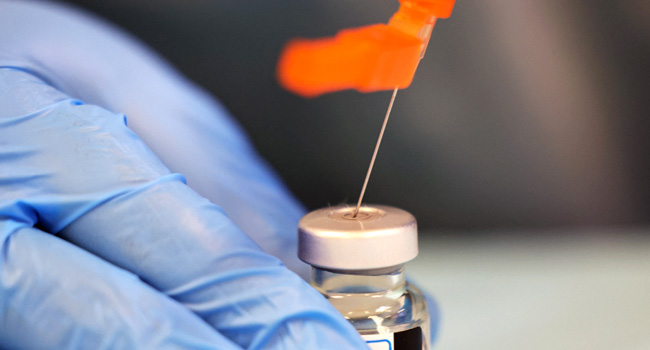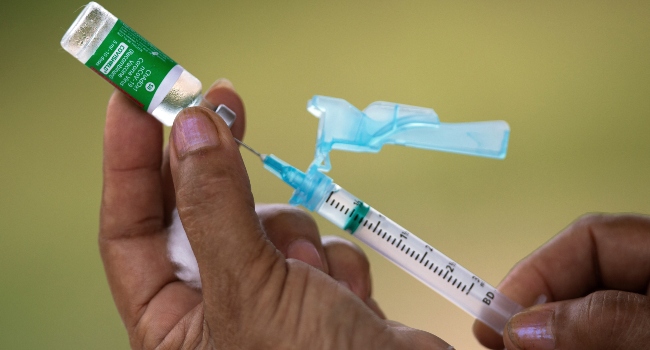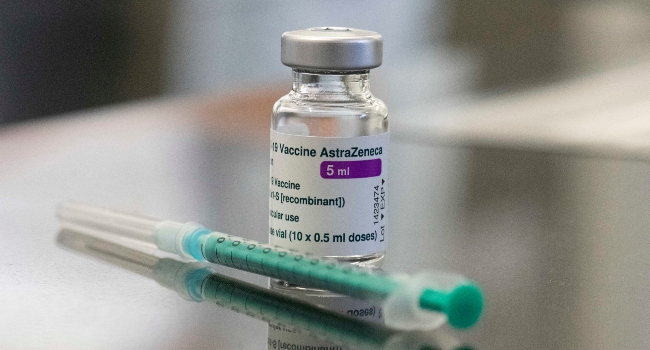COVID-19: Over 400m Doses Of Vaccines Administered Globally – Tally

![]()
More than 400 million doses of vaccines have been given around the world as of Thursday, acccording to an AFP tally.
Despite the suspension of the AstraZeneca shot in more than a dozen countries, vaccination campaigns against Covid-19 continue to pick up speed, the count based on official sources found.
In a sign of how the pace is picking up, the last 100 million people vaccinated got their jabs in 11 days — six times faster than it took to give the first 100 million.
By Thursday at 1630 GMT at least 402.3 million doses had been administered in more than 158 countries around the world.

While rich countries have fared best, vaccination in the poorer countries is at last starting under the free Covax programme.
– Israel goes further ahead –
Israel is still leading the race by far, with nearly three out of five of its population having received at least one dose. Around a half of Israeli have received a second dose.
The United Kingdom (38 percent), the United Arab Emirates (between 35 and 70 percent), Chile (28 percent), the United States (22 percent), Bahrain (22 percent) and Serbia (16 percent by March 12) are also doing well.
In terms of pure numbers, the US is way ahead with 113 million jabs given before China with 65 million (as of March 14), India (39 million) and the UK with 27.6 million.
READ ALSO: COVID-19: Why Have Some Countries Paused The AstraZeneca Jab?
European Union countries have given 54.4 million doses to 8.5 percent of the bloc’s population.
– Poorer countries now benefit –
Out of 13 of the poorest countries which have started their vaccination campaigns, nine started in early March using vaccines delivered for free under the Covax scheme launched by the World Health Organization, the Gavi vaccine alliance and the Cepi coalition.
Only 0.1 percent of the doses injected around the world were were given in these poor countries, home to nine percent of the global population. In contrast, the richest countries — which have 16 percent of humanity — have had 58 percent of the doses. More than a quarter of all doses given so far (28 percent) were in the US.
– AstraZeneca in lead –
The vaccine developed by AstraZeneca and Oxford University has already been administered in some 100 countries or territories, outshining its competitors.

Although low cost, it is being widely used in richer countries such as the UK and the EU as well as in poorer countries, thanks to the Covax scheme.
It is also being administered in India, where it is also made. The Swedish-British vaccine has however been dogged by problems, after blood clots were observed in a number of vaccinated people. But the EU regular said Thursday that it was not linked to an increased risk of blood clots.
– Where jabs are being used –
The vaccines produced by US-German Pfizer/BioNTech — which is being used in more than 70 countries — and the American Moderna, used in more than 40, are more expensive and harder to store. They are mainly used in the rich countries.
Russia’s Sputnik V vaccine, in use in more than 20 countries, and China’s Sinopharm and Sinovac jabs — which are used in 20 and a dozen countries respectively — have been administered mostly in their home markets as well as emerging and developing countries.
The American Johnson & Johnson vaccine, the first to require just one dose, has been approved in the US, Canada and the EU but has so far only been rolled out in the US and South Africa.
AFP


